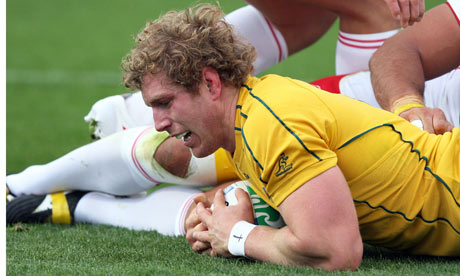
BEITBRIDGE — TWENTY-SIX years ago Ian Ferguson bought a block of land in southern Zimbabwe when it was classified unfit for human occupation.
That dry land with hopeless soil, where no crops would grow, became a paradise, teeming with wildlife.
But paradise ended last week when politically-connected men invaded the game farm at night, terrified the tourists, trashed the lodge, beat up staff and their children and stole tonnes of frozen meat.
Equipment used by professional hunters was also trashed.
The tourists were quickly taken away to safety by management and police eventually arrived, but had to be persuaded to look into the destruction of buildings and theft of property.
Last Tuesday, one member of the gang was photographed leaving the farm with a couple of poached impala strapped on to a bakkie.
“We have all the details of the group who came on to the farm and attacked us. They are well known in the area and are connected to a top person in Zanu PF who is untouchable,” Ferguson said.
Ferguson’s 18 000-hectare farm, Denlynian, has been invaded four times since the launch of Zanu PF’s land grab in 2000.
- Chamisa under fire over US$120K donation
- Mavhunga puts DeMbare into Chibuku quarterfinals
- Pension funds bet on Cabora Bassa oilfields
- Councils defy govt fire tender directive
Keep Reading
Each time Ferguson, now 77, eventually returned, repaired the fences, replaced smashed windows, patched up buildings, replaced borehole pumps, cleared wire traps and carried on.
He went to court several times and eventually won the right to remain on his land — one of a handful of white Zimbabwean citizens legally allowed owning rural land.
He even secured eviction orders for some of the persistent invaders, although the police take little notice of the court orders, he said.
“Even though we have every legal right to be there, I don’t know if we can return. So much damage was done. What worries me is the game. Last time we were invaded in 2009 about 300 zebras were killed.”
Ferguson’s small hotel was smashed to rubble.
“I’m just getting too old for this and really tired and stressed out,” he said this week.
“This land cannot be used for anything else but game. I fear the game will all be killed.”
Wildlife attracted to the safe haven provided by Ferguson has boosted numbers to about 1 000 wildebeest, 5 000 impala, 800 eland, 60 giraffes and about 60 cheetahs and all other plains game and many cats.
A reed pool on the Mazunga River is fed by underground water, which Ferguson says never dries up.
However, management of the water to keep the game watered was complex.
“It costs a lot to keep this place going and there is so little income.”
Denlynian farm is among the last of its kind in Zimbabwe.
Most, if not all, other smaller game farms and tourist resorts in south-western Zimbabwe have been taken over.
They were built up over decades and attracted eco safaris and some hunters, but probably won’t exist any longer as the latest invaders have stripped or destroyed infrastructure such as lodges.
Contacted for comment on this week’s invasion, new Environment minister Saviour Kasukuwere said he had just arrived back in Harare from Ethiopia, but would investigate this case.
“I will check it out.”
Caroline Washaya-Moyo, spokeswoman for National Parks and Wildlife Authority, said the authority would also investigate.
Home Affairs minister Kembo Mohadi, a powerful Zanu PF personality in the Beitbridge district close to Ferguson’s game farm, did not answer his cellphones and his staff said he was not available to take calls at his office in Harare this week.
Ferguson’s daughter and son-in-law were forced to leave their productive farm in central Zimbabwe nine years ago and went to Australia.
His grandson, David Pocock, is now an Australian rugby legend with a postage stamp minted in his honour.
— Sunday Argus










